The Hanoi Party Committee, with its breakthrough steps and many innovations and creations, has made an important contribution to maintaining and promoting its position and role as the heart of the country, becoming increasingly dynamic and creative. In that journey, Hanoi has been and will continue to resolutely implement three strategic breakthroughs in socio-economic infrastructure, human resource quality and institutional improvement. In order to promote institutions as the "key to resources", Hanoi has been and is actively perfecting its operating mechanism. These are the spearheads and main players leading socio-economic development, basically successfully implementing the goals and tasks of the 13th National Party Congress and the 17th City Party Congress, affirming the position of the Capital on the path of integration, entering a new era - the era of national development.
LESSON 3: IMPLEMENTING DECENTRALIZATION AND DELEGATION TO IMPROVE THE EFFECTIVENESS AND EFFICIENCY OF ADMINISTRATION Institutions are considered the key to resources. When institutions are cleared and perfected, resources will be able to fully exert their strength to serve the country's development. In order for institutions to be promoted as the "key to resources", Hanoi has been actively implementing many important and strategic tasks to remove difficulties and obstacles, create motivation and resources for the development of the capital, including perfecting the operating mechanism. The city continues to be proactive and creative in promoting decentralization and decentralization, which has brought about many practical results, encouraging dynamism, creativity and autonomy for units and localities. Increasing proactiveness, creating a launching pad for localities to develop Speaking at the opening of the 10th Central Conference (term XIII), mentioning the strategic directions and solutions in the coming time, General Secretary To Lam said that it is necessary to promote decentralization and delegation of power with the motto "locality decides, locality does, locality takes responsibility". Hanoi identified this as a breakthrough policy to develop the capital. According to Vice Chairman of Hanoi People's Committee Ha Minh Hai, decentralization and delegation of power will liberate resources of districts with good resources, increase proactiveness, and administrative reform at the district level. On September 12, 2022, Hanoi People's Council issued Resolution No. 23/NQ-HDND "Approving the Project on decentralization of state management and delegation of power in Hanoi". The project demonstrates an approach with innovative and breakthrough thinking, identifying decentralization and delegation as important content associated with administrative reform, aiming to quickly resolve issues and better serve the needs of organizations and people in the city. Decentralization and delegation of authority are closely linked to administrative procedure reform, reducing focal points and levels of task handling, shortening the time and implementing procedural processes. Thereby, promptly resolving and better meeting the legitimate needs of people and businesses. The project clearly defines that the principle of decentralization and delegation of authority must be done step by step, and can be piloted in a number of appropriate fields and areas, both ensuring stability and taking into account the innovation factor, clarifying responsibilities associated with inspection and supervision of the implementation process and enhancing the responsibility of leaders in performing tasks. The development of regulations in the spirit of thorough decentralization and delegation of authority needs to be implemented drastically according to the motto "from top to bottom" on the basis of "from bottom to top" proposals. In particular, it is necessary to carefully calculate the impacts on the people, and prioritize what is beneficial to the people, especially practical issues for the people. The city advocates promoting decentralization for agencies and units that are qualified to implement the Central's direction in a number of contents related to the fields of management of organizational apparatus, payroll, cadres, civil servants, public employees, workers, land, construction, irrigation works, etc. Thereby, contributing to promoting administrative reform, creating favorable conditions for the City to implement the urban government model. Hanoi is one of the pioneering provinces and cities in implementing decentralization and delegation of power. Since the beginning of the 2020-2025 term, the Hanoi Party Committee has directed to promote decentralization and delegation of power in the spirit of "wherever it is done well, it will be assigned to that place". The city has issued a system of normative documents on implementing decentralization relatively comprehensively in all sectors and fields. In the past, the City has implemented decentralization and delegation of authority according to the principle that whatever the lower level can do better and more effectively will be decentralized to the lower level to do, not taking on too much, solving the work quickly and effectively; at the same time, ensuring compliance with the law, science, and suitability with the characteristics of the cultural capital and special urban area. Accordingly, Hanoi adjusted and supplemented the decentralization regulations for the district level in 9 areas: Investment, renovation, upgrading, and expansion of high schools; investment in clean water systems in remote areas; local wastewater treatment works not connected to the city's centralized water collection and wastewater treatment system; investment in class 1 markets; providing electricity for lighting in alleys and lanes in districts; management of monuments and murals; relics; parking lots; traffic lights. The contents of decentralization, delegation of authority, tasks and solutions in the past time have been specifically identified by the City based on many factors, such as increasing the initiative for districts, towns and cities with good resources and capacity to organize and implement; thoroughly strengthening decentralization for the district level to promote autonomy in implementing tasks.
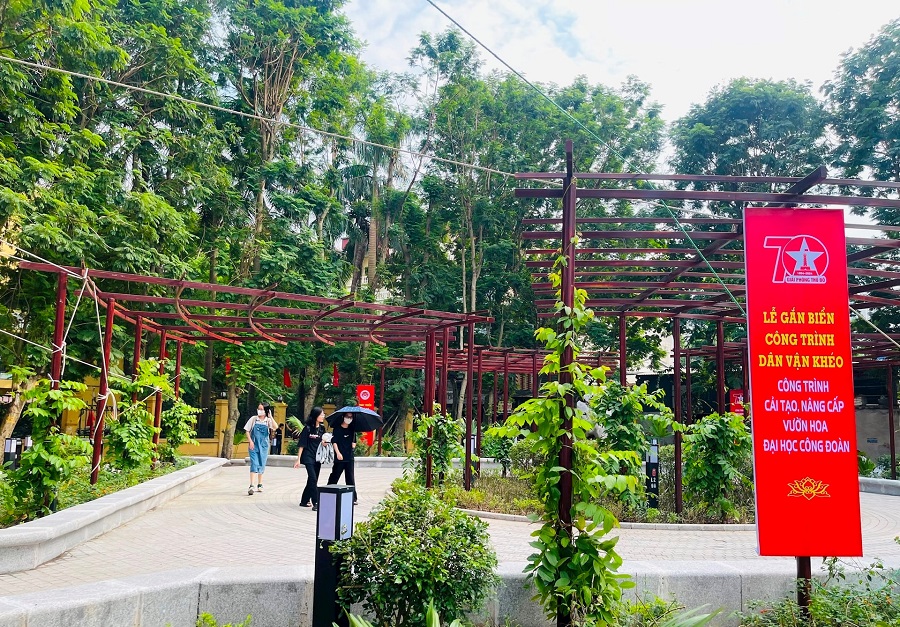 |
| The renovation and upgrading project of the Trade Union University flower garden invested by Quang Trung ward (Dong Da district) after completion will contribute to creating a green, clean and beautiful living space. |
Implementing the policy of decentralization and delegation of power from the district and city, the People's Committee of Cat Linh Ward (Dong Da District) was authorized by the District People's Committee to decentralize a number of areas such as investment in technical infrastructure and management of fire prevention and fighting facilities. Implementing this policy, Cat Linh Ward became the investor of a number of infrastructure projects in the ward. The roads and alleys of Cat Linh Ward are clean, people are excited because the process of implementing renovation and upgrading projects is of good quality, closely monitored by the people. According to comrade Dinh Quoc Phong, Head of the Community Investment Supervision Board, this is a correct policy that brings high efficiency. On the basis of understanding the thoughts and aspirations of the people, the programs and projects proposed by the Party Committee and the People's Committee of the ward are close to reality, thereby organizing construction and management more effectively. Preventing waste of resources, supplies and materials through close supervision of the community. Promoting the collective mastery role of the people. The construction and project passing through which residential group, that residential group elects a community investment supervision board, assigning specific tasks to each member. Accordingly, the supervision board includes members of the ward Fatherland Front Committee, the People's Inspection Board and the residential group, who are knowledgeable about the fields of implementation at the construction works. The members of the supervision board are assigned to supervise daily, and at the same time mobilize the people to participate with the motto "the construction works passing through the house of which resident, that family must directly participate in supervision". At the same time, the investor is required to notify 45 days in advance for the supervision board to prepare. Comrade Nguyen Ngoc Hung, Vice Chairman of Cat Linh Ward People's Committee, said that in 2024, the ward People's Committee was assigned by the district to be the investor of two projects. One is technical infrastructure projects such as renovating the road system, alleys in Hang Bot alley, Hang Chao alley... The other is social infrastructure projects to renovate and repair some community activity houses, martyrs' memorial houses... The results show that when the ward is decentralized, the right to be the investor of the projects, the ward will be closer in organizing implementation and management. When people have feedback on any issues at the project, people can directly contact the officers in charge of the ward. The ward will meet with both the design consultant unit, the supervision consultant and the construction unit to have a timely solution. The projects of Cat Linh ward are all of high quality and effective. People support and create consensus in the implementation process. In Dong Da district, decentralization and authorization combined with administrative procedure reform have many positive changes. The District People's Committee and the People's Committees of 21 wards maintain the implementation of public posting, fully listing the list of administrative procedures under their authority and the settlement process. Currently, 100% of the one-stop departments in 21 wards implement the group of 5 "no-wait" administrative procedures. 100% of administrative procedure files are resolved by Dong Da district in advance and on time. According to comrade Hua Thi Xuan Lien, Chairman of the People's Committee of Quang Trung Ward, Dong Da District, after being decentralized and delegated by the District People's Committee, the ward has approached and implemented administrative procedures promptly and effectively. Assigned to be the investor of infrastructure projects, the ward closely coordinates with residential groups, residential areas and specialized departments, technical units to conduct field surveys, develop plans and technical documents, and establish a community investment supervision board to closely monitor the construction process. Publicly and transparently announce information related to the project for people to monitor. When assigned as the investor, the ward determined to ensure quality, progress and efficiency. Efficiency is clearly demonstrated through many works and projects, in which in 2024, Quang Trung ward was assigned to implement the drainage improvement project in the ward, this is a flooded area that has existed for many years. The implementation results meet the people's wishes for many years.
Creating an environment for cadres to dare to think and dare to do From July 2021, Hanoi City began to pilot the organization of the urban government model in wards in 12 districts and Son Tay town. The ward People's Committee works under the head regime. The ward chairman is the head, responsible for leading, managing and operating the work of the ward People's Committee according to the working regulations of the ward People's Committee, ensuring the principle of democratic centralism and compliance with the provisions of law. Implementing this pilot model, Hanoi piloted the Chairman of the Ward People's Committee authorizing the judicial - civil status officer to sign and certify and stamp the Ward People's Committee on documents submitted by people and businesses to the Ward People's Committee. The authorization helps reduce the number of contacts, eliminate internal processing steps, shorten the time to process documents, create conditions for judicial - civil status officers to proactively arrange time to handle work, which is highly appreciated by the people. The city authorized a number of agencies and units to issue land use right certificates to organizations and individuals; authorized the Department of Natural Resources and Environment to carry out a number of administrative procedures in the environmental field and allowed the Department of Natural Resources and Environment to authorize the Land Registration Office to issue land use right certificates. The spirit of the Party Committee and the City government. When implementing decentralization and delegation, Hanoi must determine to serve the people, reduce time and effort, and simplify as much as possible to facilitate the people and businesses. This means increasing the responsibility of each cadre, civil servant, and public employee in performing assigned tasks. According to comrade Mai Thu Phuong, a judicial officer - civil status officer of Cat Linh ward, the authorization of the Chairman of Cat Linh ward People's Committee to carry out procedures for certification and civil status registration has brought more convenience and speed to citizens. The time to process procedures is shortened, citizens do not have to wait long, can get it right away without having to go back and forth many times. People are excited and satisfied when they are served quickly. This requires judicial and civil status officers to have more responsibilities and take on more work, officers must prepare and complete documents and papers carefully to meet the needs of citizens.
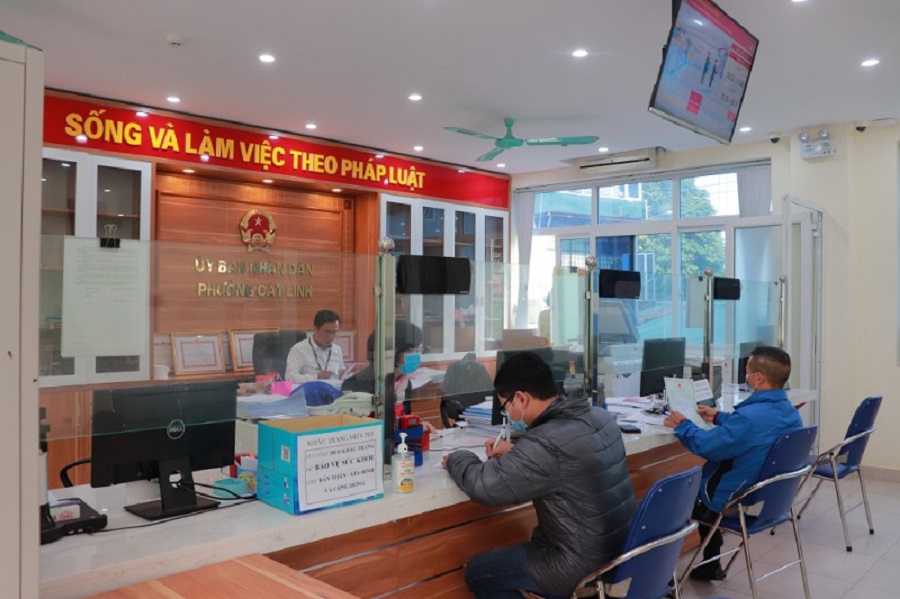 |
| One-stop shop of Cat Linh Ward People's Committee during working hours. |
When the Ward People's Committee operates under the mechanism of the head of the agency, it helps the Chairman of the Ward People's Committee to be more proactive in his work, especially in making decisions on urgent and regular tasks. The implementation is therefore more convenient and faster, while enhancing the responsibility of the Chairman and Vice Chairmen of the Ward People's Committee, especially for difficult tasks. Because of implementing this model, the operating regulations of the Ward People's Committee clearly stipulate the responsibility of each individual in performing tasks, with monthly assessments of the level of completion, directions for correction and overcoming errors if any. Implementing the urban government model with specific decentralization and authorization requires cadres and civil servants to regularly improve their knowledge and be more responsible in their work. Comrade Nguyen Ngoc Hung, Vice Chairman of the Cat Linh Ward People's Committee affirmed that in order to meet the requirements of operating under this model, first of all, cadres must be competent, secondly, responsible, and thirdly, there must be innovation and creativity in the working process. Dong Da is one of the inner-city districts of Hanoi with the highest population density in the city (about 400,000 people), an important transportation system, more than 17,000 agencies, units, enterprises and many universities, colleges and hospitals. With the general planning orientation of the City until 2045, Dong Da district focuses on the tasks of urban reconstruction, beautification, investment in synchronous technical infrastructure and social infrastructure to serve the development of trade, services, tourism and preserve traditional cultural and historical values, building Dong Da district to be civilized, green, smart and modern. When implementing the policy of decentralization and delegation of power, Dong Da district proactively and synchronously deployed from the Party Committee, the government, the Fatherland Front, and socio-political organizations to ensure that in the process of synchronous implementation, the leadership and direction of the Party Committee, the implementation organization of the management agency, and the inspection, supervision, and criticism of the Fatherland Front, socio-political organizations, and the people are ensured. After a period of implementation, up to now, the district has focused on two groups of fields: administrative procedures and urban technical infrastructure management. According to comrade Ha Anh Tuan, Vice Chairman of Dong Da District People's Committee, the district has received 118 administrative procedures that have been decentralized and delegated by the city, and the district has also decentralized 57 administrative procedures to units, departments, offices, and People's Committees of wards with an average of more than 3,000 administrative procedure records per year. With a large amount of work, the district focuses on directing departments, offices, agencies and specialized units to review the system of legal regulations to develop management regulations and guide the ward level to organize implementation to ensure compliance with legal regulations. For the ward level, the district decentralizes administrative procedures and focuses on investing in technical infrastructure systems, especially the system of parks, flower gardens, trees and drainage and lighting systems with the goal of assigning tasks to the grassroots level to ensure investment as well as management during the operation process close to reality, timely, especially with issues arising from the grassroots. Develop a synchronous implementation plan, short-term, medium-term and long-term roadmap; organize training and professional development for the team of cadres and civil servants in direct management in the direction of digital transformation, applying information technology to ensure efficiency, quality and progress. Faced with new and difficult tasks, each cadre and civil servant determines the spirit of effort and responsibility to best complete the assigned tasks. To improve professional capacity and expertise, each cadre and civil servant of Quang Trung ward regularly participates in training courses of the District People's Committee; self-study and prepare necessary and sufficient conditions before and during the implementation of decentralization and delegation of authority, ensuring that during the implementation of tasks, there are no errors, compliance with legal regulations and at the same time ensuring the effectiveness of investment projects. Comrade Tran Nhat Thai, Deputy Head of the Urban Management Department of Dong Da District People's Committee, said: Regarding the renovation and management after investment in sidewalks and streets in the period of 2016-2021 under the authority of the city, during that period, seven streets were implemented. In the period of 2021-2025, this field will be decentralized to Dong Da district, 22 streets have been implemented, and in 2025, investment will continue to renovate and beautify 7 more streets. As a result of implementing the policy of decentralization and delegation of authority, Dong Da's urban landscape is increasingly spacious and modern. Decentralization and delegation of authority have solved many limitations and difficulties. First of all, regarding project implementation time. Previously, projects under the authority of the City were assigned to one or several investors to implement the project throughout the city, leading to prolonged investment preparation and implementation. However, when implementing decentralization, the time for investment preparation and implementation was shortened. From there, investment efficiency was improved, preventing waste of materials and resources. Obviously, implementing decentralization according to the motto that whichever level is closer to reality, resolves promptly and better serves the requirements of organizations and people, then assigns that level to implement has shown clear effectiveness. Districts and counties clearly know the management needs of their localities, know which streets and flower gardens in the area need investment, which items need to be implemented in what form and who the service objects are. In addition to promoting the initiative, creativity and flexibility of localities, decentralization and delegation of authority puts pressure on the responsibility of the staff in managing and operating projects and works. The amount of work assigned to districts, specialized departments and offices, agencies and units will be greater. Higher requirements on the quality of the staff, civil servants and public employees implementing tasks from the planning stage to the implementation stage, especially in new areas, lacking experience and prone to legal risks. Although there are pressures and difficulties, the effectiveness of decentralization and delegation of authority in Dong Da district is the basis for further decentralization and delegation of authority to localities. With the right policy, consensus, and efforts of each cadre and party member for the purpose of serving the people, it will be the driving force and premise for Hanoi to continue implementing regulations and perfecting institutions for the development of the capital. Reviewing the achievements from the beginning of the 2020-2025 term to date, it is clear that the Party Committee, government and people of the capital have made breakthroughs and innovations in all fields, thereby contributing significantly to promoting comprehensive and sustainable socio-economic development. Together with the whole country, the results of synchronously implementing 3 strategic breakthroughs for the city to enter a new era of the capital Hanoi is to develop towards "Cultured - Civilized - Modern", soon becoming a globally connected city, deeply integrated, highly competitive with the region and the world; people have a high standard of living and quality of life; The economy, culture and society develop in a unique and harmonious way, truly being the center of convergence and crystallization of the culture of the whole country and the civilization of humanity; having a level of development on par with the capitals of developed countries in the region and the world.
Diep Chi - xaydungdang.org.vn
Source: https://www.xaydungdang.org.vn/nghi-quyet-va-cuoc-song/dau-an-ha-noi-tao-da-vung-buoc-vao-ky-nguyen-vuon-minh-cua-dan-toc-tiep-theo-va-het-22288
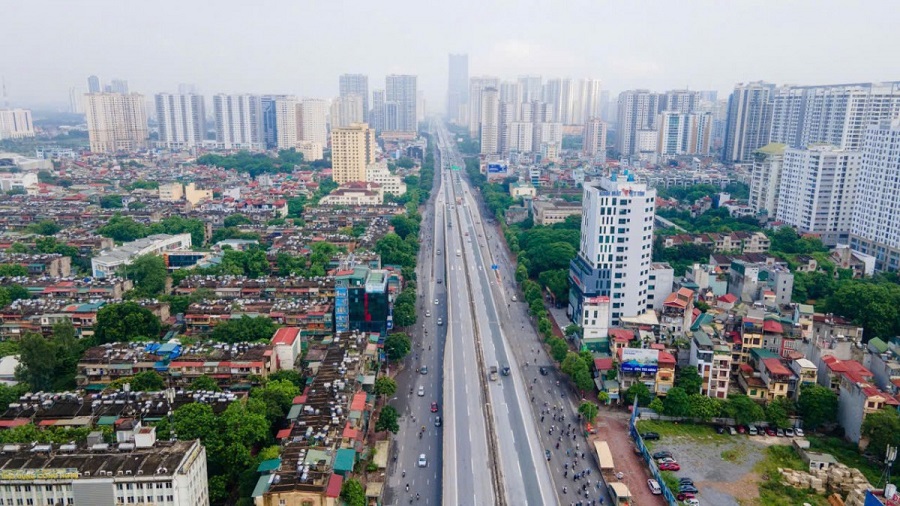
































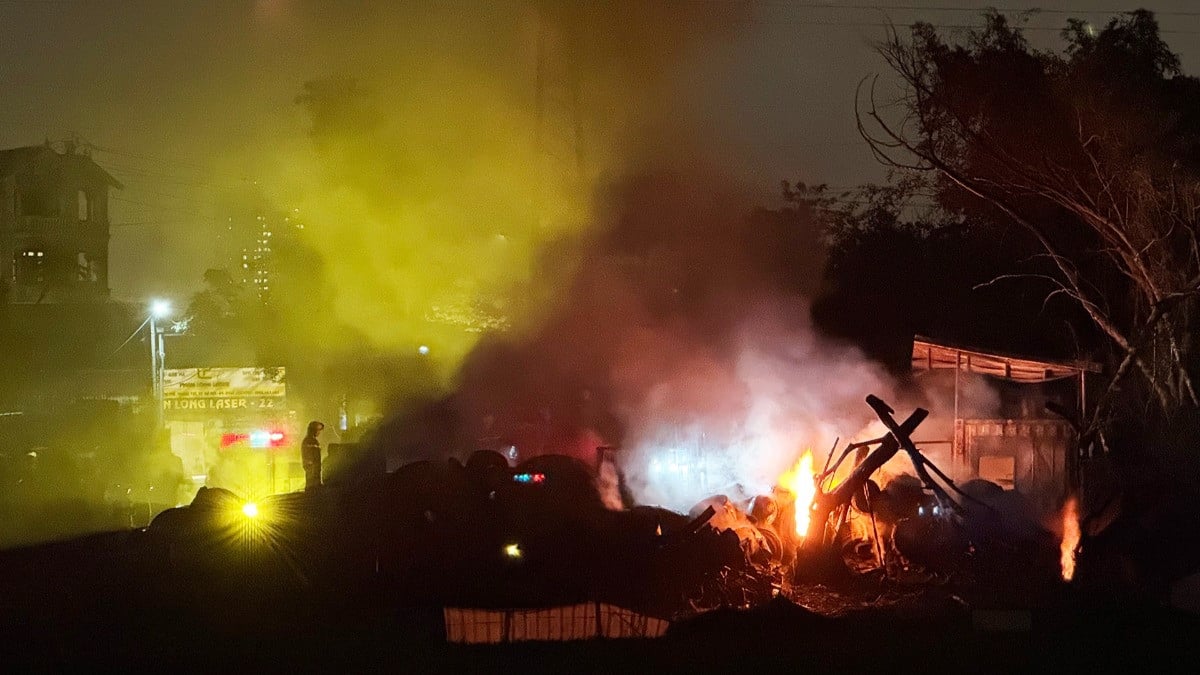



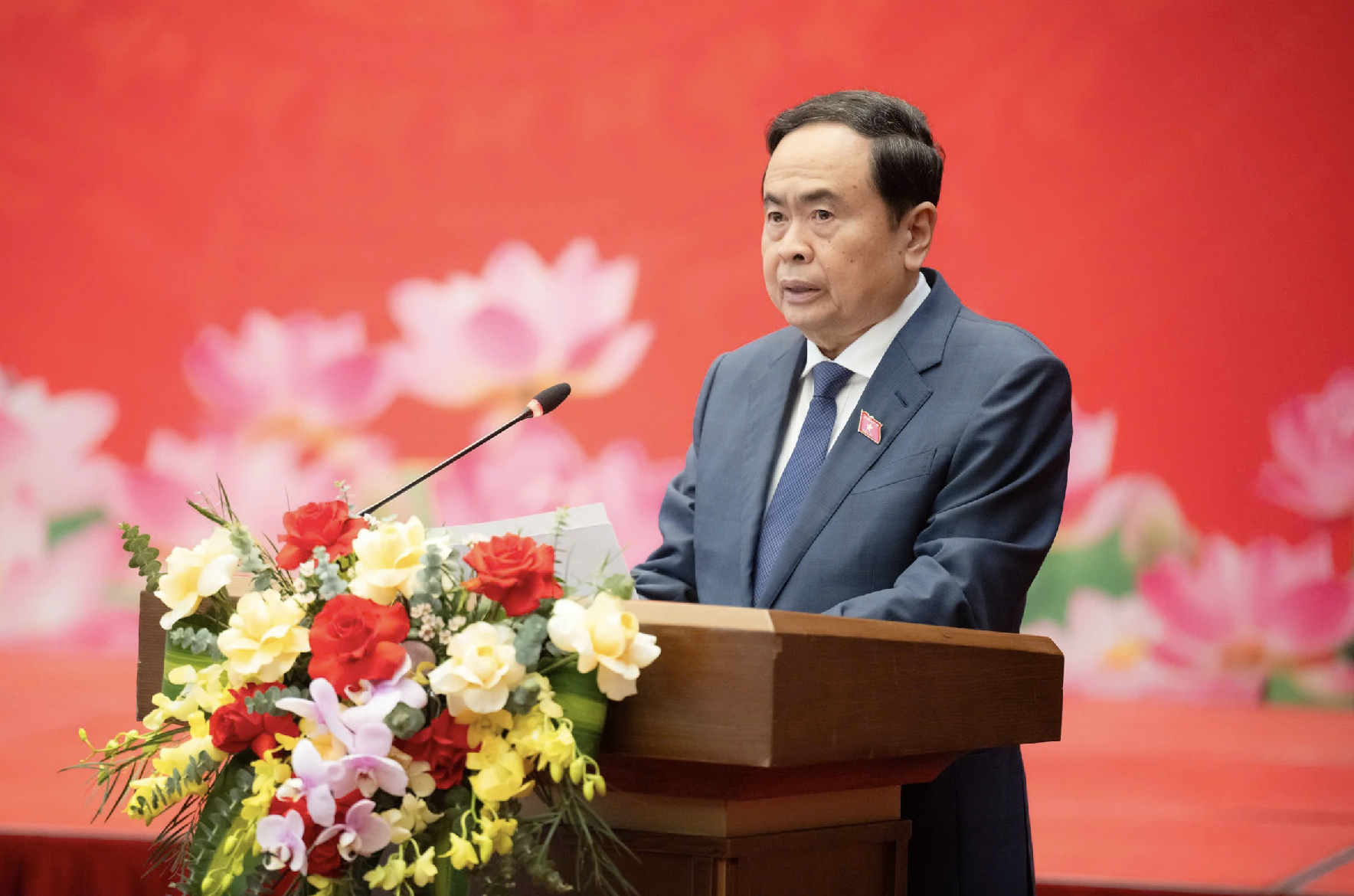

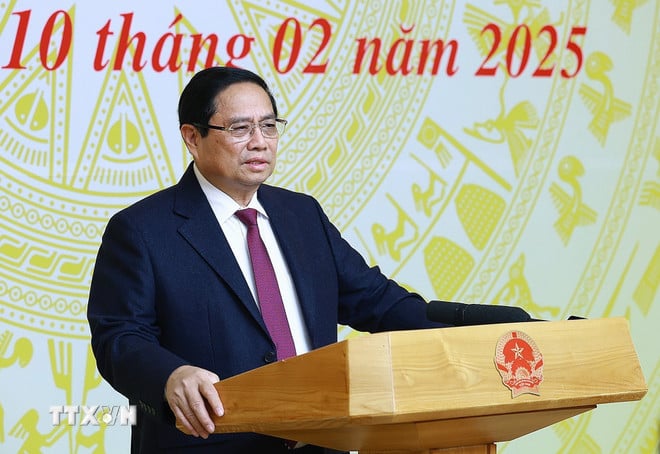
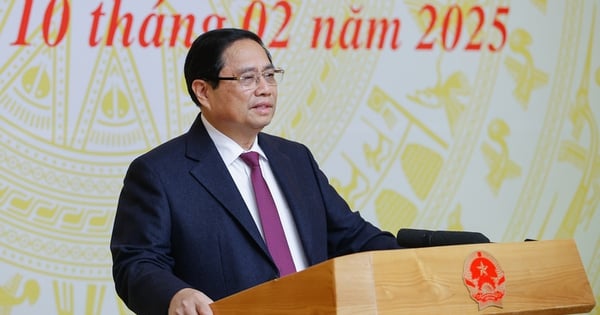

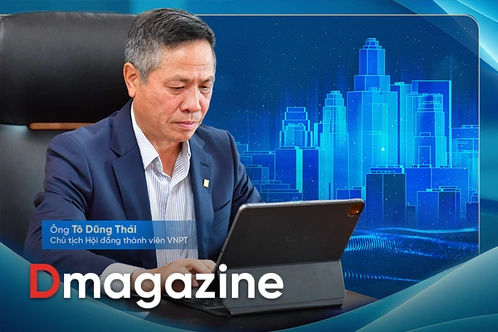







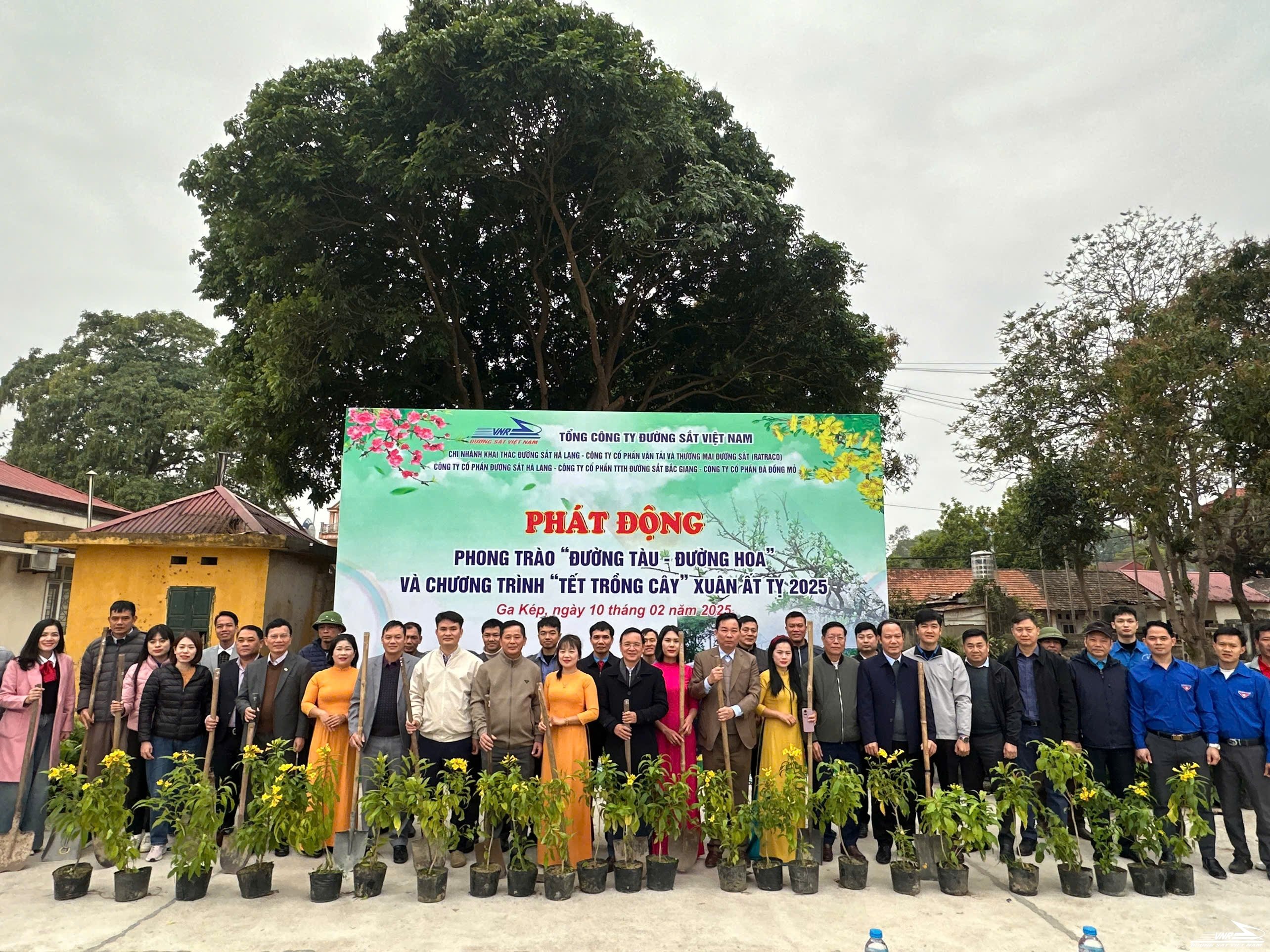
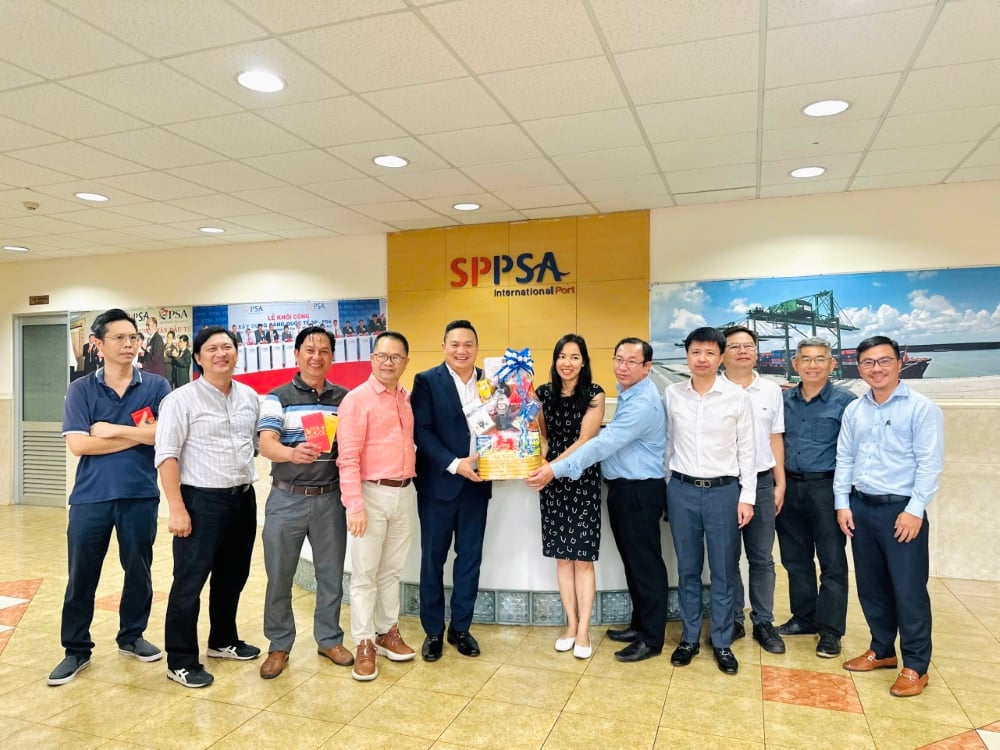
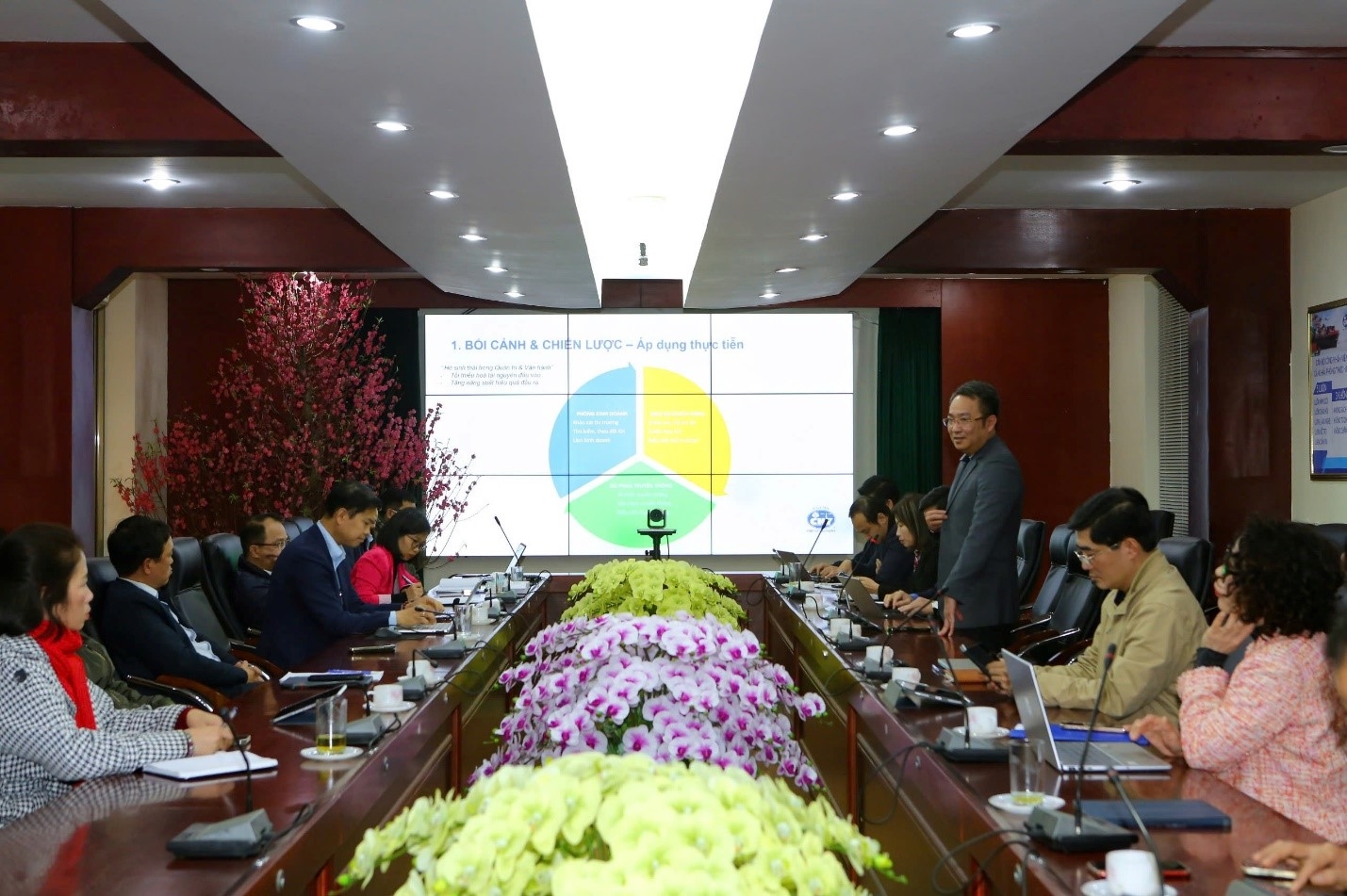
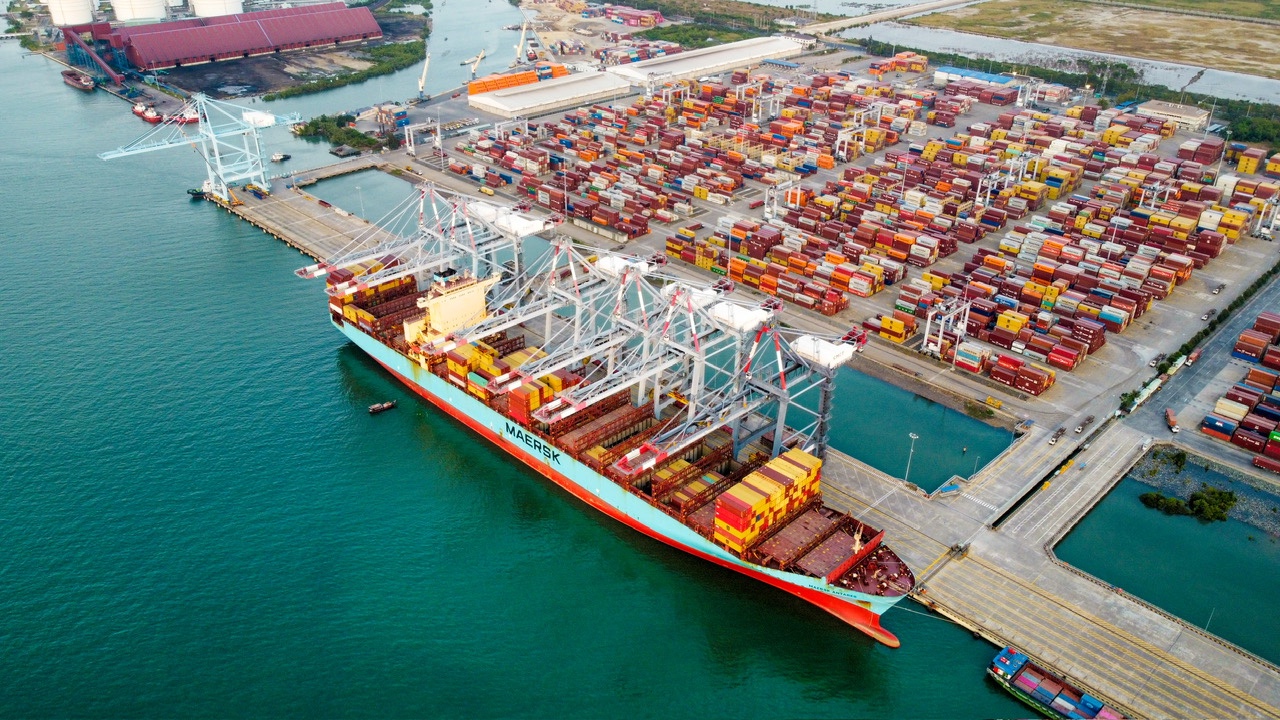

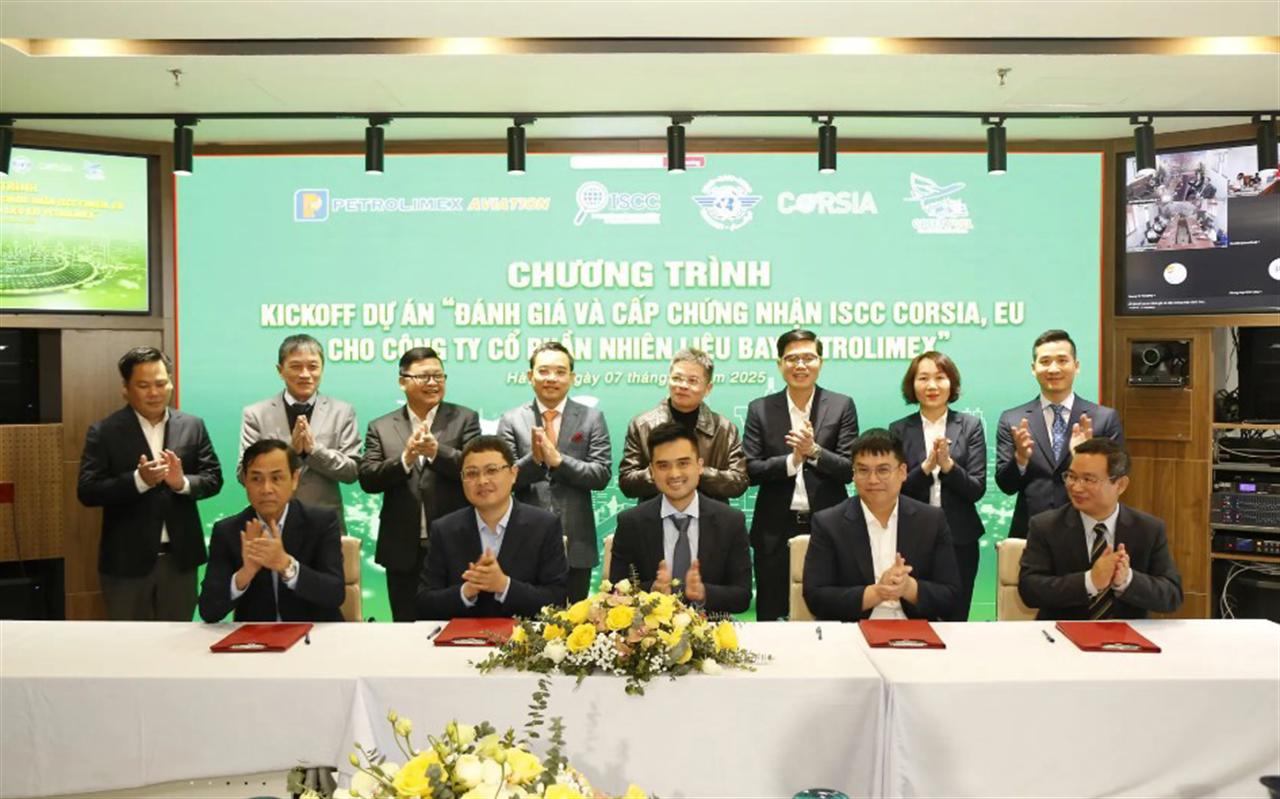
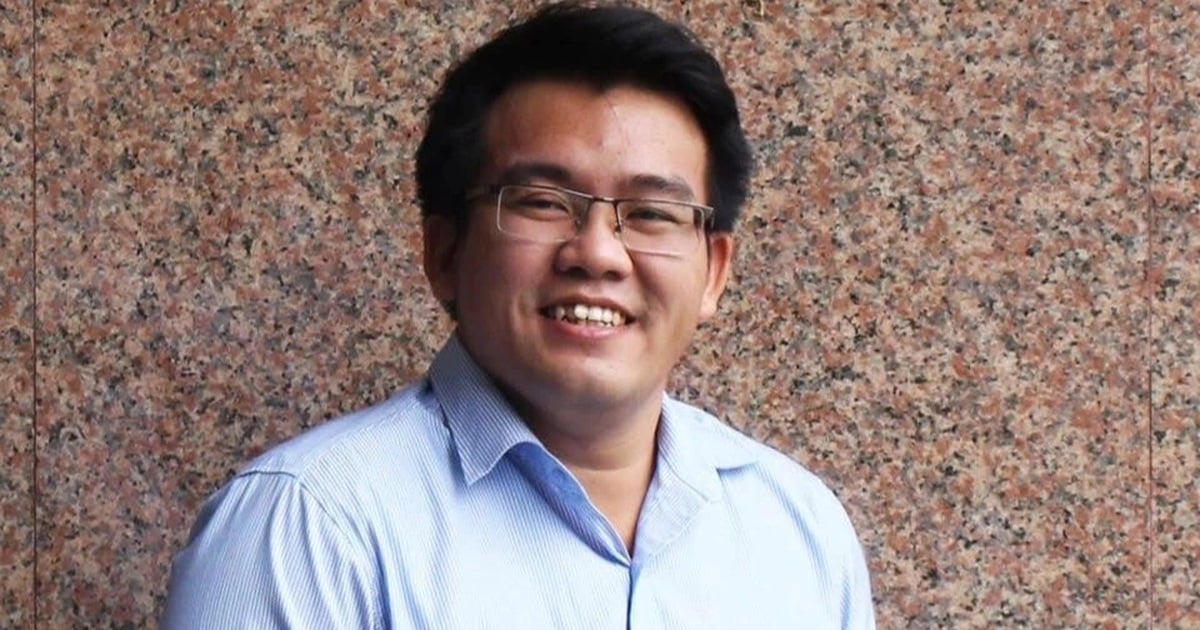
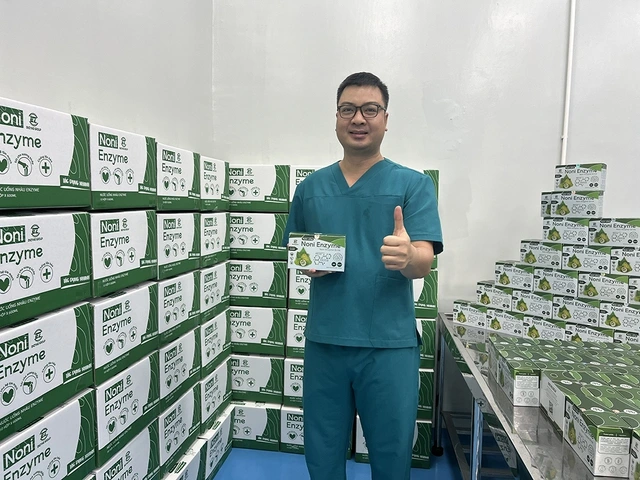

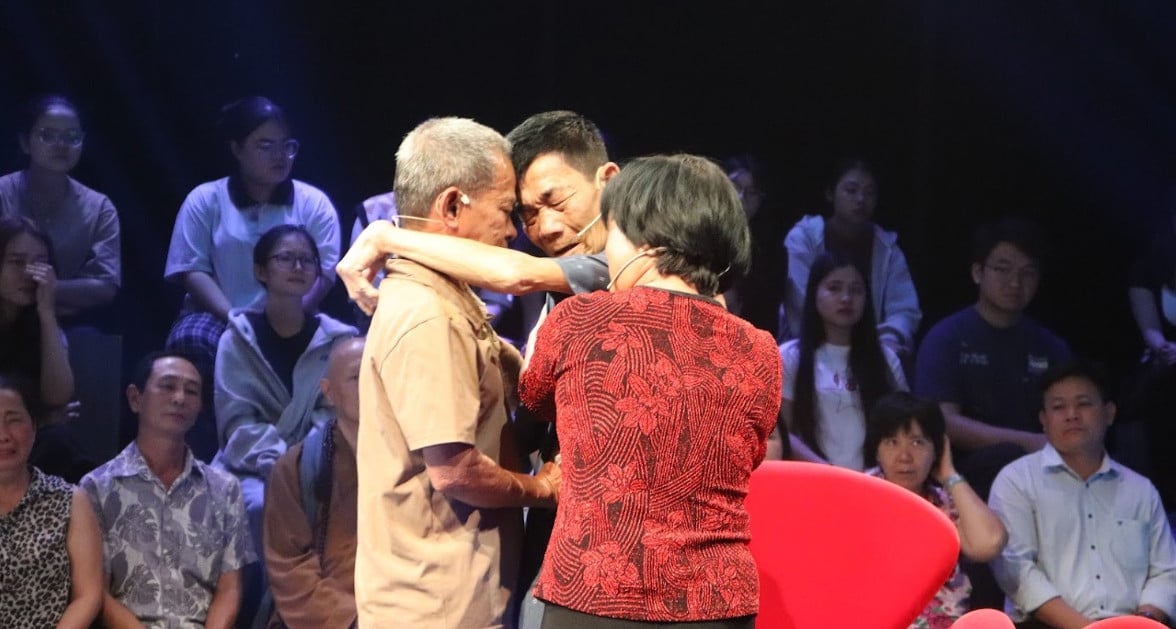
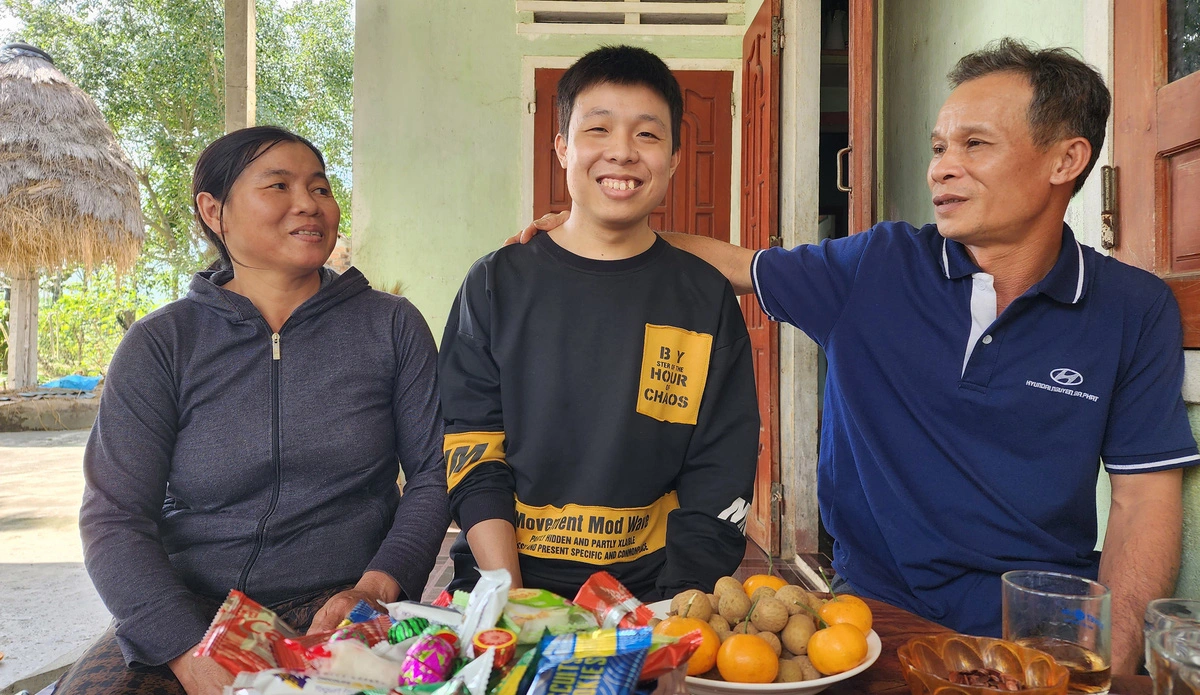



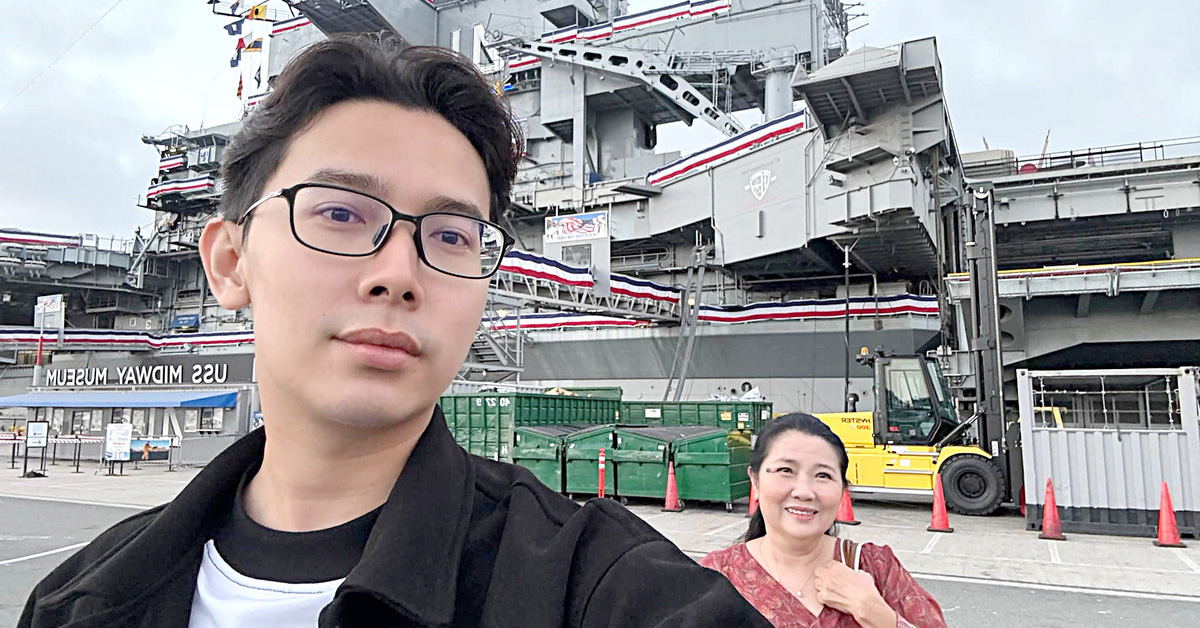



Comment (0)